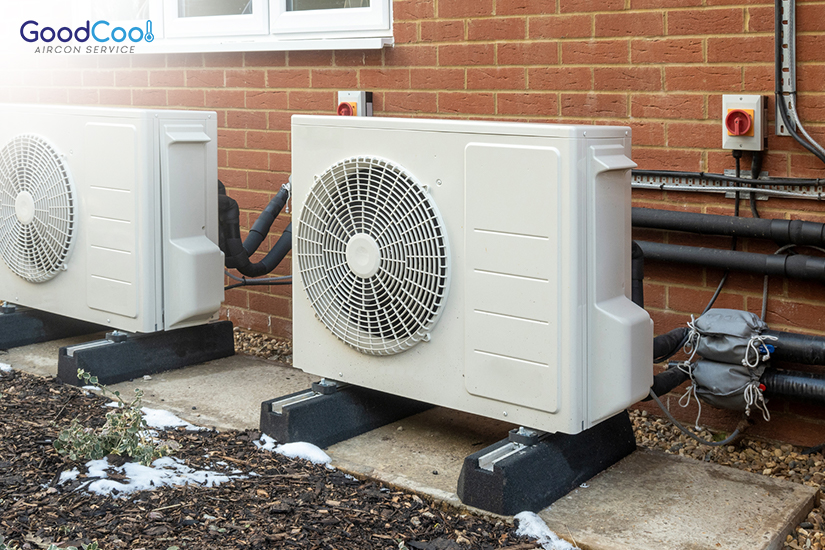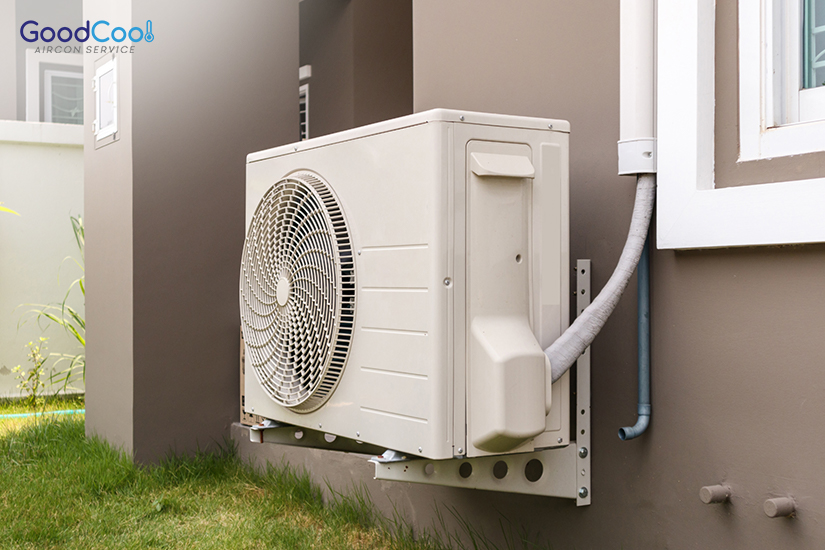How to Prevent Common Aircon Problems During the Rainy Season

Despite Singapore’s year-long tropical climate, the monsoon season (December to early March) can be intense. But while you might be prepared for the downpours, your air conditioner might not. The increased humidity and moisture can cause numerous problems for your aircon, including unpleasant odours, mould growth, and even reduced efficiency.
Here, we’ll share 5 essential maintenance tips to keep your aircon running smoothly, regardless of rain or shine.
1. Clear Drainage Systems
Your air conditioner operates by removing heat and moisture from the air, with the moisture being condensed and expelled through a drainage system. However, if the drains become clogged, it can lead to water accumulation, which may cause leaks and damage to your unit.
To prevent this, it’s essential to perform regular maintenance by checking the drainage system for debris such as leaves or dirt. Most units are equipped with a drainpipe that extends outdoors, allowing for easy inspection of blockages. To clear obstructions, use a wet/dry vacuum or engage a professional technician. This will not only ensure proper drainage but also help identify potential leaks before they escalate into significant problems for your aircon.
2. Be Wary of External Damage

With the increased moisture in the air during the rainy season, it’s crucial to inspect the exterior unit of your air conditioner regularly. Look for any signs of damage or corrosion that could have been caused by prolonged exposure to moisture. Left unattended, external damage can worsen and significantly impact your unit’s performance and lifespan, or even cause complete breakdowns.
Early detection is crucial. If you notice any damage, contact a qualified aircon technician for repairs as soon as possible. Severe damages, however, may call for a brand new aircon installation.
3. Monitor Humidity Levels
While your air conditioner keeps you cool, it also plays a vital role in maintaining optimal humidity levels indoors. The high humidity during the monsoons can cause problems like accelerated mould and mildew growth in your aircon, which can negatively impact your indoor air quality and even cause respiratory issues.
Learn more: 4 Tips to Prevent Mould from Growing in Your Aircon
Monitoring the humidity levels in your home with a hygrometer is crucial for preventing mould growth in your aircon. Adjust your air conditioner settings accordingly and aim for humidity levels below 60%.
4. Enhance Protection with Weatherproof Covers
For those with outdoor air conditioning units, consider investing in weatherproof covers to protect them from heavy rain and debris. These covers can shield your aircon unit from the elements, reducing the risk of damage and ensuring efficient operation. This also prolongs its lifespan, leading to fewer maintenance issues and lower energy bills. However, it’s important to choose covers designed specifically for air conditioning units to ensure proper ventilation and avoid overheating.
5. Regular Servicing
Just like any other appliance, regular aircon servicing is essential for preventing problems that may arise due to increased moisture and humidity. An expert technician will perform a thorough cleaning of the filters, coils, and drainage system, check refrigerant levels, and ensure all components are operating smoothly. This can significantly extend the lifespan of your air conditioner while also saving on repair costs in the long run.
By following these simple tips, you can ensure your air conditioner continues to provide cool, clean, and comfortable air throughout Singapore’s rainy season. Remember, a well-maintained air conditioner translates to a healthier and more enjoyable living environment.
For expert aircon maintenance services, look no further than GoodCool. We’ll send down our qualified technicians to handle all your aircon needs and problems, ensuring your unit operates efficiently, keeping you cool all year round.
Contact us to schedule an appointment today.
